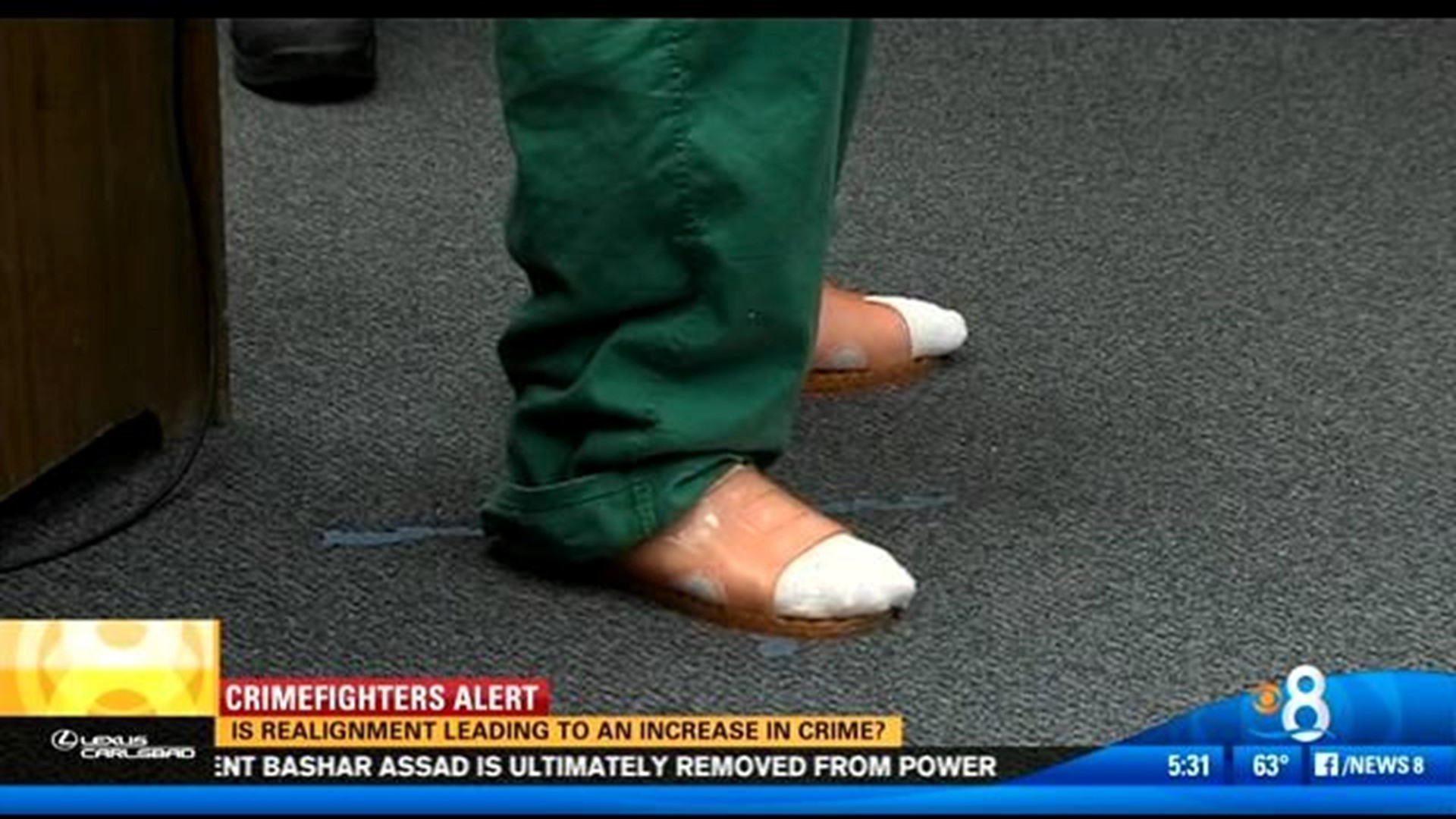SAN DIEGO (CBS 8) - The man accused of shooting a San Diego police officer last Thursday made his first appearance in court Monday. He's an ex-con who at the time of the shooting, was being supervised under California's prison realignment law.
Thirty-one-year-old Ignacio Canela has been in prison four times, and now he's charged with the attempted murder of a San Diego police officer. At the time of last week's shooting, he was out of jail under AB109, California's controversial realignment law aimed at reducing prison overcrowding. The law is not early release per se, but it has resulted in shorter jail sentences.
CBS News 8 asked SANDAG's director of criminal justice research Dr. Cindy Burke if realignment is causing an increase in crime.
"I think what's fair to say is there are fewer people what are going into our jails and prisons. Right now, there's less of a hammer of being locked up," Burke said.
Burke says property crime has gone up since realignment became a law two years ago. And because AB109 keeps non-violent offenders out of prison, it has led to overcrowding in county jails.
"Our local jails before AB109 were under capacity. Now, after a weekend, we're at 100% capacity. The sheriff's making decisions on who to release back into the community, the district attorney, probation, public defender, they're all trying to do that in a smart way," she said.
In August, Ignacio Canela was arrested for possession of methamphetamine and cocaine. He got out of jail in 10 days because his probation officer decided not to revoke his community supervision. Instead, he was given "flash incarceration," 10 days in jail without a court hearing.
"So it is a tool and it is something we're going to look at to see who gets it and how and does it result in long term reduction in recidivism," Burke said.
Under the old system, a parolee who violated the terms of his release could be sentenced to prison for a maximum of 12 months.
Under realignment, the maximum term for a revocation offense is six months in county jail.

